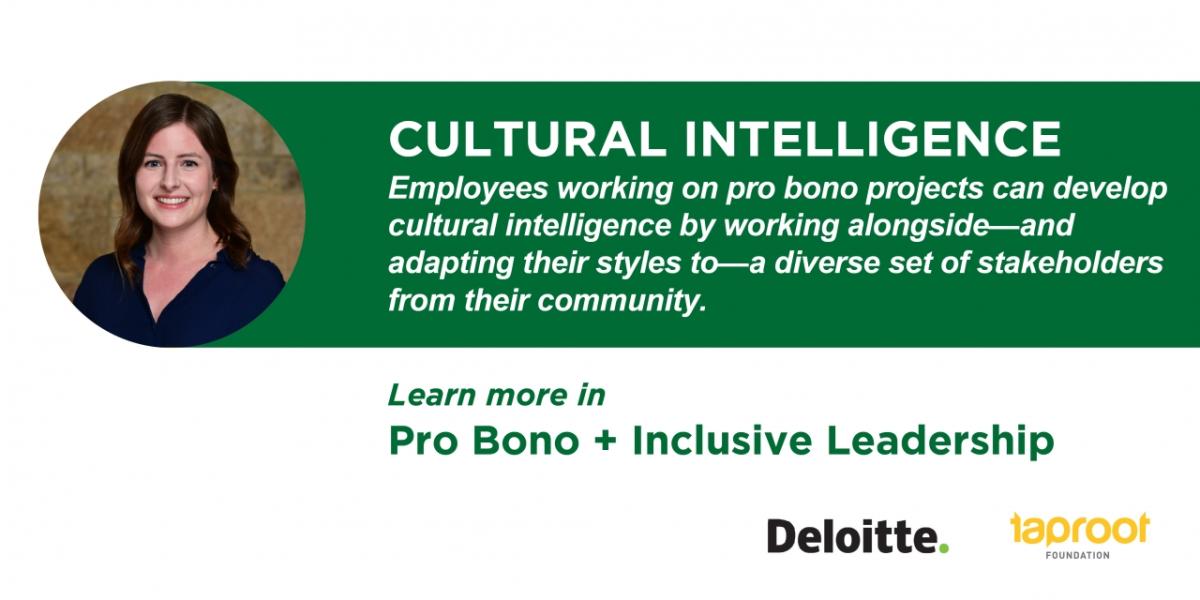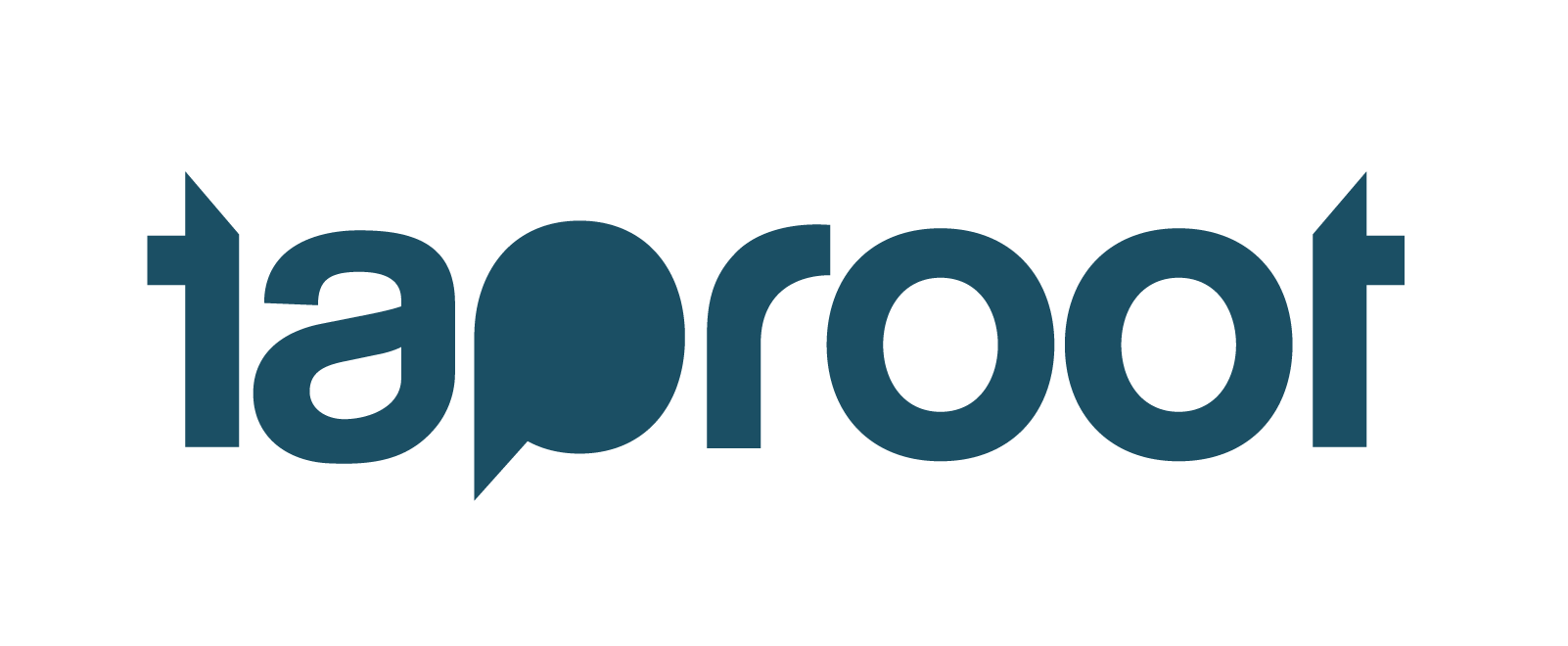Pro Bono + Inclusive Leadership: Cultural Intelligence
A deep dive into how pro bono builds cultural intelligence, one of Deloitte’s Six Traits of Inclusive Leadership.

Pro Bono + Inclusive Leadership: Cultural Intelligence
Taproot Foundation and Deloitte co-created Pro Bono + Inclusive Leadership as free resource for businesses that demonstrates how Deloitte has leveraged pro bono as one way to help develop inclusive leadership traits and how other companies can do the same. This profile from that resource showcases how a professional at Deloitte has connected pro bono experiences to their own leadership development.
How Pro Bono Supports Cultural Intelligence
Employees working on pro bono projects can develop cultural intelligence by working alongside—and adapting their styles to—a diverse set of stakeholders from their community.
Highly inclusive leaders are confident and effective in cross-cultural interactions. —The Six Traits of Inclusive Leadership
The Story: Abby Stewart
Senior Consultant, Deloitte Consulting LLP, Government & Public Services
The D2international (D2i) Social Impact Fellowship has been an important part of Abby Stewart’s career at Deloitte. The program trains fellows in social impact service delivery and pairs them with an international nonprofit organization or social enterprise to help address a critical business challenge. Fellows then spend one week in the host country focusing on cultural exchange and capacity building for the organization. Abby’s D2i fellowship experience in India, and the D2i cohort she later led in Chile, gave her the chance to operate in new cultural contexts. She learned to humbly collaborate with her nonprofit organizations, listen closely to their needs without having predetermined answers, and help build solutions with the communities in mind—all qualities of cultural intelligence.
Abby’s international pro bono work helped her see that traditional solutions to business problems are not one-size-fits-all. Instead, she saw that human-centered design, combined with empathy, generated the results the nonprofit organizations truly needed. “We must go into our work extremely humble, understanding that you don’t live someone else’s life day-to-day, and learning from them before anything else,” she said. And Abby’s newly cultivated skills are not limited to pro bono: her broadened cultural intelligence has transformed how she scopes projects in her daily work, interacts with clients, and operates in a team. She believes it’s important to be aware of each individual’s unique context and to meet them where they are. As Abby advances in Deloitte and designs more projects, she intentionally incorporates field visits and on-the-ground interviews into the program planning process. She credits D2i for building the cultural intelligence she needs to understand this critical component of client service work. “D2i has completely shaped my professional career here,” notes Abby. “Participants operate above their levels in stretch roles. They bring that back to their Deloitte client service, and we see significant outcomes.”
“We must go into our work extremely humble, understanding that you don’t live someone else’s life day to-day, and learning from them before anything else.”
—Abby Stewart
Why it Matters
Inclusive leaders take an active interest in learning about other cultures, seek culturally diverse experiences, and constantly search for local contexts. When companies invest in generating cultural intelligence among their employees, they help create an environment where all cultures are recognized, understood, and respected.
Design Tip: Applying This to Your Program
Train pro bono professionals to spend time gathering context before jumping into the solution phase of project work. Asking questions early and often, scoping projects focused on root causes, and spending significant discovery time immersing themselves in cultural context can help employees develop effective, tailored solutions for their pro bono clients.
Pro Bono + Inclusive Leadership to learn more about the benefits of pro bono service programs.

